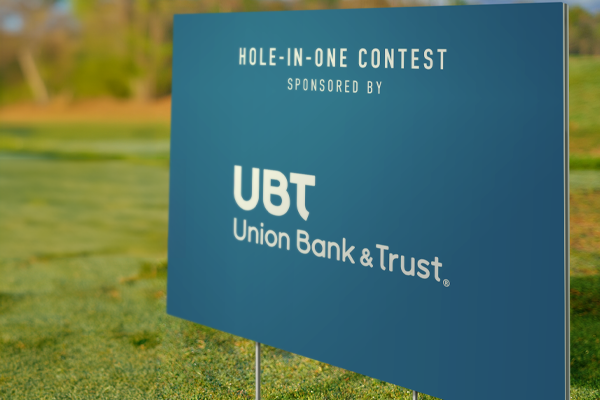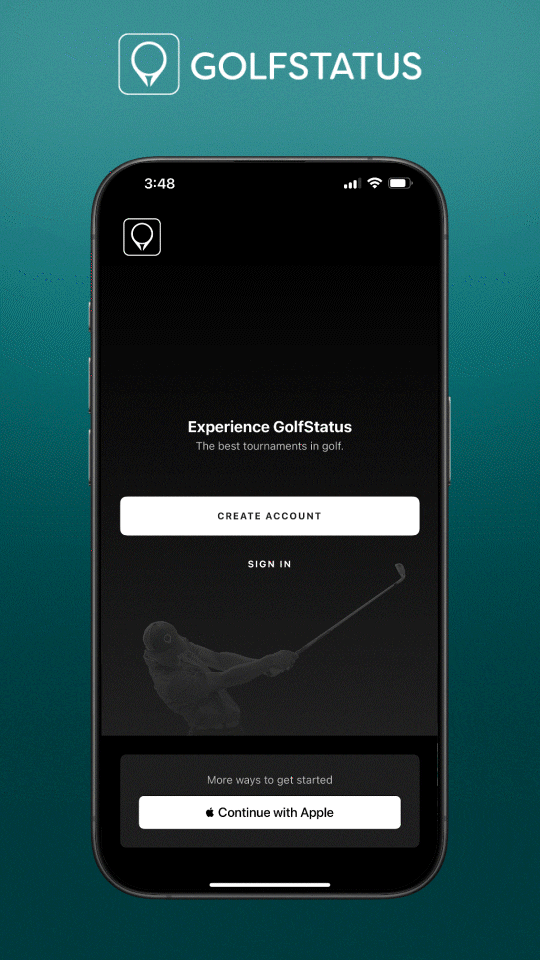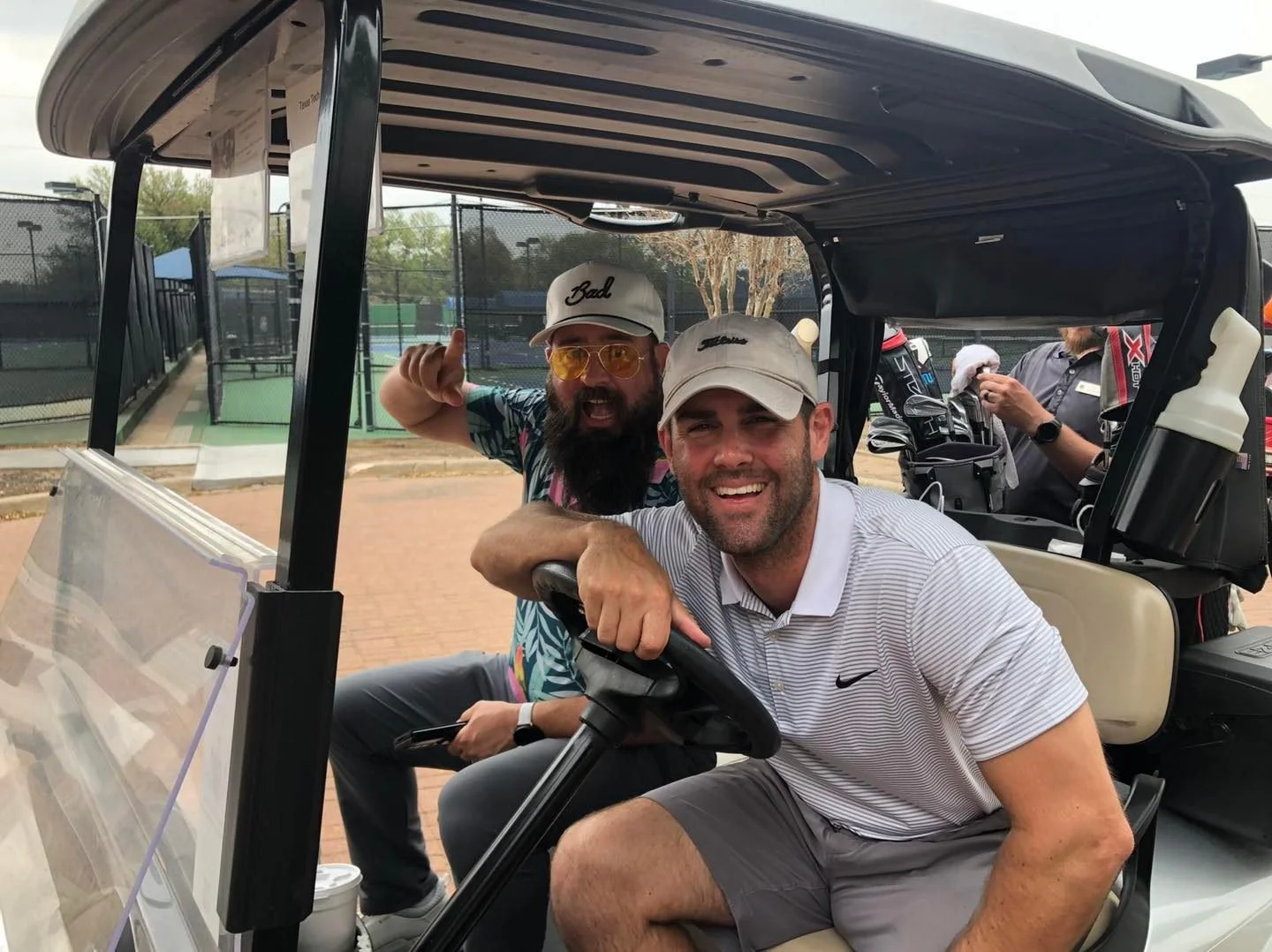Partner Snapshot
Maxwell Tyeryar served six years in the U.S. Army National Guard, including a nine-month tour in Kuwait. He earned a Sergeant’s ranking and numerous service medals, including the distinguished Army Achievement Medal.
But like many veterans, Max masked his internal struggle, and took his own life on January 29, 2022 at just 25 years old. Max’s father, Wes, launched Max Well for Life to honor Max and help support those who struggle with their path in life, along with the families and friends who have been impacted by the loss of a loved one through suicide.
Michele Mikk’s two sons were good friends with Max and he spent a lot of time with her family, so it was devastating to learn that he had taken his own life. After Wes organized a walk dedicated to Max, Michele’s sons approached her with the idea of a golf tournament. She immediately said yes, and the Max Well For Life Charity Golf Tournament was born.
The Challenge
Beyond raising money, Michele knew they wanted the golf tournament to bring people together and raise awareness about the struggles veterans often face. “Even if we’re able to help one person, it’s enough,” she says.
Michele isn’t a golfer, but knew she didn’t have to be one to raise money with golf. Her two sons played golf with Max in high school, so as a golf mom, she knew enough to get started.
“I don’t have to know how to play golf to raise money with it!”
She’s good at handling details, but wanted an easy way to collect golfer registrations, sell sponsorships, and handle the bookkeeping side of the tournament—without being mired down with spreadsheets, checks, and emails.
The Solution
A friend of Michele’s told her about GolfStatus, a software platform built specifically for golf fundraisers. She looked further into GolfStatus and found that it checked all the boxes—easy to use, attractive website, online registration, payment processing, and golf-specific features. They signed on right as they started planning the inaugural tournament and used the platform to establish processes and give the event much-needed infrastructure.
The Results
Michele says the planning team, which included Beth Ann Mellott, Kathy Tyeryar, and Wes Tyeryar, had no idea what to expect in terms of fundraising for the event’s first year, and were thrilled with the total of $25,000. Year two saw an increase in the tournament’s fundraising outcome, raising $34,000. “The money is amazing and it helps people, but at the end of the day, the tournament is a chance for people who knew Max to come together and talk about him,” Michele says. She says GolfStatus was a key component of the tournament’s success.
“It was so great, super easy to use. It’s been a no-brainer to keep using it.”
Software Provides Infrastructure & Organization
Once GolfStatus was in place, Michele says they “never looked back.” Having a powerful tool to manage the tournament from the get-go ensured the team stayed organized and didn’t waste time dealing with multiple platforms and logins.
It all started with an attractive event website where folks could go to find out more about the tournament and learn about Max. Visitors could browse registration packages and sponsorship packages and complete their registration online. “Online is the way you do anything these days,” Michele says. “It was very easy and everyone was receptive to it.”
Once golfers registered, their information dropped into GolfStatus’ intuitive backend. From there, Michele could track teams and sponsorships sold, available funds, and sponsor assets. “We set it up so I got a notification anytime someone registered or made a donation,” she says. “It was super user-friendly.” As the tournament neared, Michele simply downloaded the platform’s pre-formatted printouts, including alpha lists and cart signs, and clicked print, saving herself hours of administrative work to create them from scratch.
GolfStatus’ pre-formatted reports and printouts saved Michele a ton of time and effort.
Michele also handled all the bookkeeping, which was made simple by the robust reports available in the software. The tournament raised money to establish a scholarship fund at East Carolina University, Max’s alma mater, for a student pursuing a military career, as well as an endowment at the local community foundation to help support the mental health needs of veterans. She could track tournament income in GolfStatus’ backend to facilitate the donations to these causes in Max’s memory.
Leveraging Networks
Since the goal of the tournament was to remember Max, the vast majority of the sponsors and golfers had a connection to him, his family, or the planning committee members. “It really has turned into a way to bring our community together,” Michele explains.
The tournament was open to the public, and it was promoted on social media and flyers with a QR code that linked directly to the tournament’s website. When registration opened in January for the May tournament, teams sold out within a week and organizers had a waitlist for foursomes. The event was capped at 34 teams to maintain a comfortable pace of play.
Beth Ann, Kathy, and Wes had deep connections to businesses in the community, which were leveraged to sell sponsorships. Michele says each person reached out to businesses they had a connection to, and nearly every one of them said yes to supporting the tournament.
Because the event was raising money for a charity, it qualified for GolfStatus’ Golf for Good program and no-cost access to the platform. The one requirement of the program is to list GolfStatus’ exclusive Technology Sponsorship for sale. The sale of the sponsorship brought in an additional $2,500 and further demonstrated Max’s legacy on the community. “When the Technology Sponsor sold to TVAR Solutions, it was one of the only ones none of us were familiar with,” Michele says. She reached out to inquire about the business’ connection, and it turned out they were an old neighbor of Max’s parents who heard about the tournament and wanted to be part of it.
“The money is amazing and it helps people, but at the end of the day, the tournament is a chance for people who knew Max to come together and talk about him,” says Michele Mikk, Max Well For Life Golf Tournament Organizer.
Add-Ons Drive Revenue & Connections
The planning team wanted to make the tournament memorable while incorporating elements that connected golfers to Max. Max loved disc golf, so on two holes, golfers threw one of his discs as their drive. “People loved it, because it meant something to Max,” Michele said.
Merchandise bearing the Max Well for Life logo were sold at the event to raise additional funds.
The tournament incorporated several contests, including longest drive, closest to the pin, putting, and hole-in-one. GolfStatus’ Bundled Hole-In-One contest package was a great fit for the event, offering a seamless option for tournament planners looking for an additional premium sponsorship offering. “It was so easy—I didn’t have to do anything!” Michele says. “I set up what we wanted to sell the sponsorships for and GolfStatus took care of the rest.”
Beyond contests, the tournament generated additional revenue by selling mulligans, Max Well for Life apparel, and raffle tickets for items donated by sponsors.
Looking to the Future
After year one, the event moved golf courses and had a top-notch experience at P.B. Dye Golf Club in Ijamsville, Maryland. “We had a great experience there and plan to keep the tournament there,” Michele says, especially now that they’ve built a strong relationship with the course. The tournament has experienced great success, so no major changes are planned for the next couple years, except perhaps adding an additional game or two to make it even more fun.
“Folks told us it was the best tournament they’ve ever played in, and we want to keep it that way,” Michele says. She credits GolfStatus for keeping the planning team organized and letting them focus on things like sponsorships and fun add-ons instead of worrying about administrative tasks. She says having a good committee is so important, with people who are willing to handle the details and others who will go out and sell sponsorships.
“Planning a golf tournament is a lot, but staying organized with GolfStatus makes it easier.”
Golf for Good
GolfStatus is the leading event management platform for charity golf tournaments and fundraisers. It streamlines and simplifies golf events to save organizers a ton of time and has built-in tools to raise even money for your cause. Through GolfStatus’ Golf for Good program, nonprofit organizations (and those planning golf events to benefit one) can qualify to use GolfStatus at no cost. Get an event website, online registration with secure payment processing, the ability to collect donations, exclusive sponsorships and exposure, live support seven days a week, and golf-specific tools to make your tournament the best one yet. Click below to book a meeting and get qualified.




















































